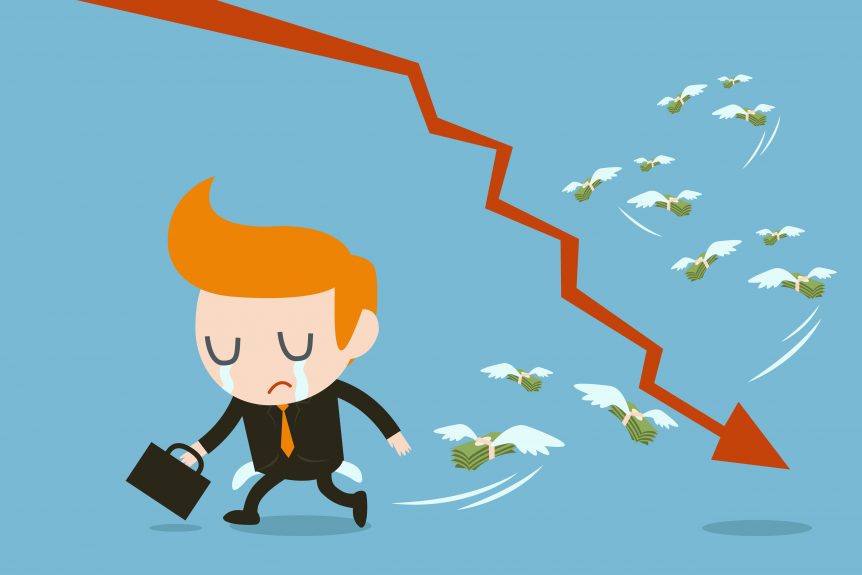- Home
- Money
Five Financial Tips for Young People in 2020
In an ever-more complex world, and with so much to think about every day, finances can only take up a certain amount of bandwidth in our conscious minds. True, our personal financial situation can be incredibly important, granting us freedoms to travel, work, play and socialize whenever we want, but overall, we tend to avoid thinking for long periods about our cash flow. This article aims to change that, by introducing five incredibly important tips to help you think through and manage your finances as a young person in modern-day America.
Use Apps
The benefits of being a young person in the modern era are huge – and one of the biggest benefits is that young people have grown up with digital technologies, smartphones and apps, that they’re incredibly comfortable using them daily. Make use of this advantage by finding the best money management apps on the market to use with your bank accounts to understand your spending.
Neo-Banks
You may be aware of the ten or twenty biggest banks across America, but you may be less aware of the new, smaller banks – often completely digital, with no physical branches – that are emerging across the country and the world. With new features like free overseas withdrawals and special rewards schemes, these new banks offer incredibly competitive, appealing deals for the young people savvy enough to find them.
Debt
Young people tend to be amongst the most vulnerable to debt. That’s hardly surprising: they’re more naïve than most adults, and they’re also at the start of their careers and their financial journeys, and many choose to enter debt to put themselves through college or university. The key lesson, if you find yourself in debt, is to be calm. Don’t kneel to the debt collectors. Indeed, their threats and demands often cross the line into plain illegal harassment – and in these scenarios, lawsuits over debt can require professional help from lawyers who will fight on your behalf to resist the advances made on your assets by debt collectors.
Investing
If you’re looking good financially, and you’re earning considerably more than what you’re spending, it might be time to look at the investment opportunities you may be able to take advantage of in the coming months. You should look primarily into property and stocks or shares, which means that you should invest in something for the long-term, which may make you a lot of cash over time. Investing is a smart way to protect your wealth.
Savings
Finally, don’t forget to make up some savings over the next few years of your life. Savings are incredibly important for you to be able to afford a mortgage later in life, or to save up for other fabulous and once-in-a-lifetime events, like weddings and honeymoons, or that around-the-world-trip that you’ve always held in the back of your mind. Savings pots are incredibly easy to set up and can provide an extra safety net should you lose your job in unfortunate circumstances in the future.
Make use of these five financial tips to stabilize your financial health in the weeks and months ahead.
Go for Growth – 5 Methods You Can Use to Boost Your Business When Growth Has Plateaued

Customers used to be lining up at your door, and the phone was ringing off the hook. Now? Silence. There will come a time when your company’s growth starts to plateau, and you might be wondering if there is anything you can do to fix it. Fortunately, there is. Here are five growth methods that can provide that much-needed boost at the right time:
A New Location
Working from home can save you a fortune in lease and rent costs. It’s an ideal option for start-up businesses and entrepreneurs who prefer the flexibility of a home office. However, there is going to come a time when your business can’t get any further without a change in address.
Many established and start-up businesses are beginning to see the value in serviced office packages as opposed to traditional office leases. The costs are far more manageable, and you also get to enjoy a professional image and location that can boost business growth. Working in your pajamas is no longer an option, but it’s a small sacrifice to make for the benefit of your bottom line.
Alternative Marketing Strategies
You would be amazed at how many marketing techniques exist. The reason why so many exist is that every business works differently and has to reach a specific demographic. A walking stick salesperson will find a smaller market of interested buyers on the internet, but a larger one in the local newspaper. The results might flip for someone selling computers.
If growth has plateaued, then play with your marketing methods. Re-evaluate the avenues you use now, and consider the use of a marketing expert to highlight the best routes to consider. Your current marketing method may have worked once, but it might not be doing your business any justice today.
Special Event
A common problem many business owners face is that they are not in the right location. They may not get the foot traffic they require, or they aren’t in front of people’s faces. Social media marketing can let people know you exist and what you sell, but a special in-store event can bring them to you. Whether it’s a professional event, conference, or a free-for-all, you can attract all the right people to your business with a bit of planning and hype.
Incentives
Loyal customers mean everything to a business, but it can be hard to retain them and build on them if you don’t put in any effort. If you’ve noticed a drop in growth recently, then evaluate your incentive programs for customer retention. Focus on tactics to promote expenditure, such as reward points, referral rewards, membership cards, and prize draws. People like to feel loved, and your special attention will pay off with repeat business.
Expand Your Range – But Slowly
If you’ve reached the absolute limit of where your current business model can take you, then it can feel like you are beginning to stagnate. The only thing to do now, aside from sitting pretty, is growing your range to grow your business.
Look at complementary products and services that can enhance your business and bottom line. For example, if you sell shoes, you might look at shoe repairs or sock sales. There are plenty of avenues, but remember to grow at a sustainable pace.
Every business will go through a slow stage where they feel like they are stagnating. Get back on that upward trend by re-evaluating your location, marketing techniques, and even what you sell to your customers. You’ll be back to full growth in no time.
How to Purchase a Motorhome Next Year
Are you approaching retirement age from your job? Seeking an overhaul to your current life situation? Want to travel around the country and even further afield? If so, a motorhome could be the ideal solution.
Although a motorhome can be an expensive outlay — especially if you have no savings or pension to fall back on — it’s much more affordable when you plan ahead. If you give it 12 months to save and prepare, the motorhome will obviously be easier to purchase.
If you need advice on how to raise the money, below are tips to consider before purchasing a motorhome next year:
Begin Putting Money Aside
When you have time to put your finances in check, it’s easy to start putting money aside for that dream motorhome. If you already receive an ample amount of expendable income from your job, there’s no issue with cutting out a few treats and saving it all up. However, if most of your monthly paycheck is tied up, consider changing around a few bills — such as that premium cable package or unused gym membership — that are not necessary.
Downsize and Sell Off Unwanted Assets
A year provides a generous amount of time to downsize your life. If the plan is to effectively turn the motorhome into your first home, there’s no need to stick with your current abode. If you sell your house and move into a smaller property, this will likely supply the necessary funds to cover a motorhome.
Even if you don’t downsize your house, look into offloading any assets you no longer require. These possessions could include everything from gym equipment to cars.
Improve Your Credit Score
A good credit score can help in many different ways. This is especially the case when it comes to applying for a loan. If you have an excellent credit rating, the interest on a loan will tend to be much lower than if the credit score was bad.
A year will provide sufficient time to improve your credit score. As for how this can be achieved, there are various methods that can be utilized. Simply repaying your monthly bills on time will help, as will paying any credit card debt off early.
Opt for a Personal Loan
Even after a full year of saving up, you might have failed to amass the necessary funds for a new motorhome. Even in this case, not all hope is lost. One solution that’s available is a personal loan.
While this can be attained from a large bank, it is sometimes best to get a loan from a small lender. Take Auto Finance Online, as an example. This company specializes in financing for motorhomes and caravans, and they ensure the whole process is effortless, even for those with bad credit.
Pick the Right Motorhome
With plenty of time on your hands, you won’t be rushing into a motorhome purchase. This gives you the advantage of scouting all available options, comparing features, and deciding on the right motorhome for your needs. It also provides the opportunity to closely analyze what motorhome features you don’t require, which might help cut down on the overall cost of the vehicle.
Top Tips For Snagging The Best Mortgage Rates
You probably don’t have enough cash on hand to purchase a home outright. Most people need the support of a lender to afford the ability to purchase a home, and getting a good mortgage rate is vital.
Purchasing a home is a long-term commitment that is worth spending the time it takes to find the most suitable mortgage options. Check out a quick look into a few excellent tips for snagging the best mortgage rates, and get into a home you can truly afford to own.
Boost your credit score
Your credit score will be a large part of a lender’s perception of your reliability. A higher credit score shows that you’re a reliable individual who pays their bills on time.
If your paper trail proves you to be a financially dependable person, lenders will offer you better mortgage rates. Give yourself at least two years to raise your credit rating before ever investing time in the search for a mortgage lender.
Build a solid job history
When you set your mind on buying a house, you need to set your mind to building a solid job history. If your job history is unstable, your finances look unstable to potential lenders. If you wish to find the lowest rate on your home loan, then you’ll need to put in the work.
If you’ve held down the same job for several years, you look like someone who is settled and trustworthy. Holding a job shows commitment, and commitment is needed to sign a 15-30 year mortgage agreement.
Save money for a down payment
The more money you have to pay down on the home you are trying to purchase, the more reasonable deal you’ll get on your mortgage offers. Money talks, and a solid down payment speaks volumes.
If you have a more challenging credit rating, try to save up close to 20 percent of the cost of the property. With 20 percent on the table, lenders will have more trouble turning you down for a loan.
Look your best physically
It may seem silly, but the way you look when you speak with a lender matters. If you present yourself as disheveled, lenders will be less likely to trust that you’re a reliable recipient. Dress in your Sunday best to apply for a mortgage loan, and approach the situation with confidence.
Look for a fixed-rate mortgage offer
If you’re committed to living in your new home for quite some time, then you may benefit from a 15-year-fixed-rate mortgage setup.
As long as your cash flow is reliable and good, you’ll have your home paid off in half the time as the traditional repayment period. You will also have better offers on interest rates for your mortgage.
How to Borrow a Short-Term Loan Wisely
Many people in the UK will turn to a short-term loan at some point. Whether it’s in the form of an online payday loan or another type of short-term funding, these borrowing options tend to be a very convenient way of accessing cash, with swift application processes and many lenders willing to provide much-needed finance to those with a poor credit history or bad credit score. However, even if you’re only borrowing a short amount of money for a short period of time, this doesn’t mean that you shouldn’t approach with some caution. These types of loans often have high interest rates as they are unsecured, and tend to be provided on the basis that they are there to help in a financial emergency, rather than for purchasing luxuries. So, if you’re considering a short-term loan, what can you do to ensure that you are choosing and using it wisely?
Avoid ending up in a debt trap:
Before applying for payday loans or any other kind of short-term finance, it’s important that you thoroughly assess your finances and determine how much you will need. Many people fall into the trap of taking out a loan only to realise that they have not considered the full amount that they will need to pay back including the interest, and then find themselves in a similar situation to the one they were in before getting the loan. As a result, many borrowers end up tempted to take out another short-term loan to cover their outstanding expenses, which can quickly turn into a cycle of debt. So, be sure that you’re fully aware of the complete amount you’ll need to repay, to avoid any nasty surprises.
Consider alternatives:
Payday and short-term loans are usually provided on the basis that they are for use in a financial emergency, so it’s worth making sure that you have exhausted all other avenues possible before you go down this route. If you need quick cash, there are other options that you might want to consider such as selling higher value items like computers, TVs and other electronics, or jewellery, which could quickly provide you with some much-needed cash. And over the long term, it’s worth setting up an emergency fund that you pay a small amount into each month so that if you do find yourself in a position where you require urgent financial assistance in the future you have savings to turn to instead.
Carefully consider the amount you borrow:
As a general rule of thumb, you should only get a short-term loan to cover the amount that you specifically need in that moment of time. While it can be tempting to borrow more – especially if a larger amount is available to you – it could actually end up being more trouble than it is worth, as the interest amount will be higher when repaying. So, be sure to only use a short-term loan for the essentials such as living costs, emergency bills, or home repairs, and don’t borrow more than the expense is going to cost you.
Short-term loans can be a convenient way to get emergency cash when you need it, but be sure that you approach this kind of borrowing wisely.
3 Tips To Help You Save Money At The Gas Pump
Although many people and countries are trying to move away from using fossil fuels, the majority of people who own their own vehicles still use gas as their main source of fuel. And while many of those people would like another option, because biogas and its byproducts are so prevalent to consumers, this resource dominates the market.
But just because you’re needing to get gas to fuel your car doesn’t mean that you should have to pay more than is necessary for this resource. So to help ensure that you’re able to save as much money and as much fuel as possible, here are three tips to help you save money at the gas pump.
Consider How You Pay For Gas
One reason you might be paying more for gas each time you stop as a gas pump could be that you’re paying for your gas in the wrong way.
According to Anthony Giorgianni, a contributor to Consumer Reports, paying for gas with just a normal debit or credit card might be the worst way to pay for gas. Because many gas stations offer discounts on price if you use cash, stopping by an ATM on your way to fill up could save you at the pump. Additionally, if you fuel up using a credit card that gives you reward dollars or points for every purchase you make at a gas station, you could wind up saving in this way as well.
Make Your Car More Fuel Efficient
To reduce how often you’re having to visit the gas pump in the first place, it can be very helpful to do everything in your power to make your car more fuel-efficient.
To help you with this, Steve Gillman and Nicole Dow, contributors to The Penny Hoarder, recommend that you do things like keep your tires properly inflated, remove excess weight from your vehicle, and purchase the most fuel-efficient car for your needs. By doing these things, you can get more gas mileage for every gallon you put into your car in the first place, saving you from having to get gas as often.
Don’t Get Premium Unless You Have To
According to Melissa Neiman, a contributor to Money Talks News, so many people waste money on gas expenses by buying the wrong type of fuel for their cars.
While you might think that choosing premium gas for your vehicle would be an improvement, this type of gas isn’t required nor recommended for use in most cars. So unless the owner’s manual of your car explicitly states that this is the type of fuel you should be using, save your money by using regular unleaded instead.
To help you save money and fuel, consider using the tips mentioned above to spend less at the gas pump.
3 Cost Cutting Ideas to Consider When Buying a New Home
There’s no doubt about it: moving home and buying a new property is going to cost a significant amount of money. It’s a worthy investment, however, which means ultimately investing in real estate is a sound move – as well as enabling you to move into your dream property, of course. Although buying a new home is expensive, you should always be on the lookout for ways to cut costs and save wherever you can.
Here are a few ways you can do so.
- Work Out a Budget and Stick to It
It’s important before viewing any potential new homes that you work out the absolute maximum figure you can comfortably afford to invest in real estate. If you begin viewing properties without a clear figure in your head, then it can become overwhelming and you may end up falling in love with something which is completely out of your financial league.
A good budget should also include any extras, such as home improvements you might need to make. You may view a property which is in budget but which needs significant work doing to it – do you have the required funds to improve it to your desired standard?
It’s a good idea to avoid viewing any homes which are out of your budget – even just a little bit, no matter how tempting it might be. Although a more expensive home might be offering everything you need, if you can’t afford it, then it will do no good to look. You will only end up being financially worse off in the long run if you scrape together extra money from valuable savings or take out loans to afford a more expensive property.
- Consider Hiring a Real Estate Attorney
It may be that you come across some legal issues or legal questions which a general real estate agent does not have the knowledge or power to answer for you. If you are ever uncertain about areas regarding a property you wish to purchase, hiring a real estate attorney to help with the proceedings means that you can make the right decision from the first instance. You should also be able to avoid any financial risk in the future by doing this. Watts Law Firm can help with any real estate needs you might have.
- Improve Your Credit Score
The better your credit score when you come to purchase a property, the lower your lender rates and fees will be, which means a large financial saving for you. You should try to get your credit score in order before applying for a mortgage loan. There are many things you can do to improve your credit score, including ensuring that any credit card balances are cleared and that bills are always paid on time.
It’s also a good idea to avoid taking out any new loans or credit cards directly before searching for a new property, as these can affect your credit score.
4 Simple Tips to Save Money

There’s no denying that we all need to save money. However, very few can achieve the desired savings without a commitment that involves changes in lifestyle and making a few compromises. But the good news is that the most challenging aspect of the journey to financial security is getting started. And with a little discipline and planning, you’ll be surprised at what you can do even with a modest income. To this end, here are a few simple tips to help you save your hard-earned money.
Track your monthly expenditure
It’s impossible to begin saving money if you don’t have a clear idea of how much you spend. As such, it makes sense to track your monthly expenditure first. From the groceries and utilities to the mortgage, it’s vital to ensure that no expense is overlooked. Number crunching may be a tedious, if not laborious, task but the information that it yields can be invaluable in helping you find areas that you can potentially cut costs in; and as a result, save some money in the process.
Make it a habit to shop around before spending
One of the reasons why a lot of people spend more than they need is that they often buy on impulse. Instead, it’s good standard practice to carefully consider all available options before spending any money. From checking different stores for the essentials like clothing to comparing travel insurance from ucompare.ie for that vacation you’re planning, making it a habit to shop around first will pay dividends in keeping your expenditure to a minimum and your savings high.
Only use your credit card when necessary
These days, you’ll be hard-pressed to find anyone without a credit card. After all, they can be incredibly useful in tight situations and emergencies. However, it’s crucial only to use them when necessary. After all, it’s a lot harder to control our budget if we rely on this mode of payment too much. And by sticking with cash, you’re far less likely to spend more than you need. More importantly, you’ll avoid the soaring interest rates too.
Invest in energy-efficiency
There’s a reason why more and more people are going green: not only does it allow them to do their part for the environment, but it can keep the utility bills like gas and electricity to a minimum. As such, so should you. So if and when the opportunity presents itself, invest in energy-efficient technology like LED lighting systems or solar panels. Their upfront costs may not necessarily be cheap, but they’re well worth the investment when you consider the reduction in the monthly bills.
Even with limited financial resources, it’s more than possible to achieve a good amount of savings. The key lies in maintaining self-control and discipline. And by keeping these tips in mind, not only will you reduce your expenditure considerably. But you’ll also increase the amount of money you save in the process as well.
To read more on topics like this, check out the money category
Caught In A College Cash Crisis? 5 Money Hacks to Try Before Asking Your Parents for Help
Back to school season is upon us, and a lot of students are looking for tips on how to avoid going broke. This makes sense because as we get older, we develop a strong urge to become financially independent. Read on for five money hacks that’ll keep you financially secure, so you don’t have to ask mommy and daddy for help.

1. Take advantage of student discounts
One of the sweetest perks of being a student is that you get discounts for pretty much anything. This includes restaurants, movies, clothing stores, buses, and even bank accounts.
In fact, certain companies are even willing to offer small loans to students looking to bridge the income gap. That way, if you overspend one month, you’ll have enough to tide you over until the next. You can even save money on laptops and electronic repairs just by carrying your student card.
2. Stop blowing your money
Students are notorious for reckless spending. From late-night UberEats orders to Starbucks runs and video games, there are many ways in which you could be leaking money. It’s important to monitor your spending and see what you can cut out or substitute with cheaper alternatives.
You can still go out with friends on the weekends and enjoy the college experience. But if you’re going out, plan ahead and do your ‘pre-gaming’ at home, so you only need to buy one drink when you get to the club. Meal prep on the weekends so you’re motivated to eat at home instead of buying take-out. Be savvy when shopping and look out for promotions and discounts.
3. Budget
If you’re not spending within your means, you’re going to go broke and find yourself eating beans and toast real quick. The easiest way to budget is to work out how much you’ve got coming in each month from work, your student loan, and/or your parents.
Contrast this with how much is going out in the form of food, fees, books, etc. Work out the difference so you can set a realistic budget that you can live by. Consider using an online banking tool to help you stick to your budget. It’ll alert you each time you’re close to your spending limit and keep you from going into the red.
4. Make extra cash
Try and find ways to make extra money while studying. If you have a skill like music, writing, editing, hairstyling, or even designing websites, leverage it to make extra cash in your spare time.
Consider being a Resident Assistant (RA) so you can earn some money while studying. Some RAs even get free room and board or a discount to stay in the dorms. Granted, it’s a huge commitment because you’re going to have a lot of responsibility. But, it’ll look great on your résumé because it shows you have work experience. Plus, you’ll save so much money on your housing expenses.
5. Buy second-hand textbooks
One of the most expensive things you’re going to spend money on in college is your textbooks. You might need to buy more than ten books per semester, and the cost can really add up. One way to save is to buy your books second-hand from a student who’s a year ahead of you.
Alternatively, split the cost of buying textbooks with a friend who’s doing the same course. Make sure it’s someone who’s willing to share the books. Otherwise, buy them second hand from these websites.
Being a student is tough enough without having to stress about money. Apply these simple tips, and you’ll never go broke again!
Money Mistakes That Could Destroy Your Finances
Building a stable financial future is a difficult thing to do, especially these days. Modern breadwinners have to work hard to navigate a treacherous professional landscape in which too many Americans are making too little money, even as the prices of essential things like shelter rise. Still, many Americans manage to scrape together the cash they need to survive and, in many cases, thrive. They’re careful and clever, and they save their pennies for rainy days and retirement.
The care and wisdom of these Americans makes it only more frustrating to see sound financial decisions derailed by occasional mistakes. Unfortunately, it only takes one misstep to undo years’ worth of careful saving and budgeting. That’s why you need to be vigilant and avoid the pitfalls that have destroyed so many lives. Here are a few common money mistakes that could threaten your finances. Steer well clear of them.
Taking out too much auto debt
Debt can be a very dangerous thing in personal finance, but — as many Americans are aware — debt can also be a tool. A home loan can help people increase their net worth in the long run, and loans for large purchases like cars can help pace out a big expense and keep bills paid, savings account stocked, and futures bright.
But be careful, because any type of debt can be toxic if it’s more than you can afford to pay back. You should be particularly careful about loans that might reasonably be viewed as just “OK” debt, rather than “good” or “bad” debt. Car loans are a great example: While they can certainly be sensible, they aren’t exactly good. You’ll want to be careful about how much you take out, so that you don’t end up being one of the many Americans who fall behind on their auto loans.
Part of the trick is to shop in the right places, say the pros at a respected Honda dealership in North Olmstead, OH. You don’t want pushy salespeople urging you to take out tons of debt for a pricey car; you want helpful people who have your best interests at heart. Do your research, shop wisely, and avoid taking out lots of debt. Then, apply this same logic to other large purchases.
Turning investing into gambling
If you’re saving for retirement, then you’re probably already aware that you won’t get far without investing your cash. Thanks to inflation and the relatively meager power of simply pocketing your pennies, you absolutely have to get your money to generate interest if you’re going to retire as comfortably as you might hope.
It matters, though, how you invest. Putting cash into tax-advantaged accounts like 401(k)s and IRAs is a smart move, because it limits your tax burden and helps you maximize the value of what you’re saving. But inside and outside of these accounts, it also matters enormously which stocks, bonds, and funds you buy or buy into.
So crack open a guide to trading for dummies, or hire a financial adviser who knows what he or she is doing. Look for safe and reliable ways to grow your retirement fund. If you have some extra money to play with and want to get creative or start day trading, great — but keep your retirement nest egg growing slowly and safely, and watch out for leveraged strategies that leave you exposed to risk. Investing is sensible, but you need to make sure that investing is what you’re doing — rather than speculating or gambling.
Using credit cards too often
Credit cards are convenient things, because they let us buy things without having to carry loads of cash around. But that convenience isn’t really the point of your credit cards, at least not from the perspective of the credit card companies. The real point is the credit — essentially, each purchase is a little loan that you pay back when you pay your credit card bill.
And if you let your credit card balance roll over month to month, you’ll find out that those loans often come with hefty interest rates. On top of this, psychologists agree that credit cards encourage us to spend more money. So be careful with those credit cards, and limit how much you buy with them. Pay off your full balance every month, and remember: If you can’t afford to pay it off, then you can’t afford to buy it with a credit card.

















